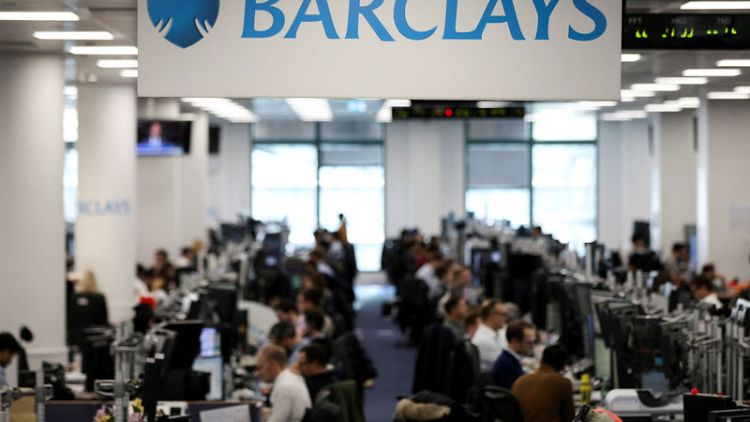By Simon Jessop and Sinead Cruise
LONDON (Reuters) - Activist investor Edward Bramson is likely to fail in his attempt to get a board seat at Barclays' annual meeting next week, even though shareholders are dissatisfied with performance of the group's investment bank.
New York-based Bramson's Sherborne Investors and the board of the British bank have been sparring for months over Barclays' strategy.
Bramson wants to scale back Barclays' investment bank to reduce risk and boost shareholder returns. Barclays Chief Executive Jes Staley remains staunchly committed to growing the business out of trouble.
After failing to persuade Staley to change course since he began building a 5.5 percent stake in the bank in March last year, Bramson hopes a board seat will rachet up the pressure.
Both sides have written to shareholders pitching their case and Bramson has courted investors in one-on-one meetings, although none have publicly backed him yet.
Interviews by Reuters with five institutional investors in Barclays suggest Bramson has failed to persuade them.
Sherborne declined to comment.
Mirza Baig, head of investment stewardship at top-40 shareholder Aviva Investors, said Bramson was welcome on the bank's register but the boardroom was a step too far.
"He has created a lot of value at other businesses, but, generally, when he has come in as executive chair and taken full control. This would be a different case where he would just be one lone voice on the board," he said.
A second Barclays shareholder said he backed Bramson's goal of improving returns but via an "evolutionary" approach.
"If you look at banks that have tried to restructure their operations in investment banking - you look at Natwest Markets, Deutsche Bank - I struggle to think of an example where a roughshod restructuring has been accretive to shareholder value."
A third, top-30 investor said he had been impressed by incoming Chairman Nigel Higgins' grasp of the challenge in hand, and felt investors would give him time.
"Management know they have to execute and deliver improved returns... [Higgins] will continue to re-shape the board but obviously he didn't feel that having someone with a diametrically opposed view on it would be helpful."
A fourth, top-30 investor agreed: "We voted for the chairman to come in and it would be crazy to allow an activist to join the board (at this time)."
Jupiter Fund Management, the 24th largest investor, said it also planned to vote against Bramson.
Barclays has nearly 500 institutional shareholders, Refinitiv data showed.
Since Staley joined Barclays in 2015, the investment bank returns relative to capital invested have increased but are still underperforming the overall business.
Barclays' first-quarter figures showed the investment bank posted a 6 percent drop in income from its markets business and a 17 percent fall in banking advisory fees.
Returns in the investment bank fell to 9.5 percent from 13.2 percent a year ago.
Famed for successful campaigns against smaller British companies in sectors from chemicals to advertising, Bramson's board seat pitch has been rebuffed by shareholder advisory firms.
Institutional Shareholder Services, the world's biggest, said Bramson's proposal "falls short of what can reasonably be expected from a shareholder trying to address issues at a 28 billion pounds, systemically important bank".
Glass Lewis also flagged concern about Bramson's lack of banking experience and "questionable" shareholding structure, referring to Sherborne's use of derivative contracts to hedge losses should its strategy fail.
Critics said the arrangement meant his interests are not truly aligned with those of other long-term shareholders.
British advisory firm Pirc, however, said it recommended that investors abstain in the vote on Bramson's proposal as a challenge to the board to do better in the year ahead - or face a similar contest in 2020.
(Editing by Jane Merriman)



